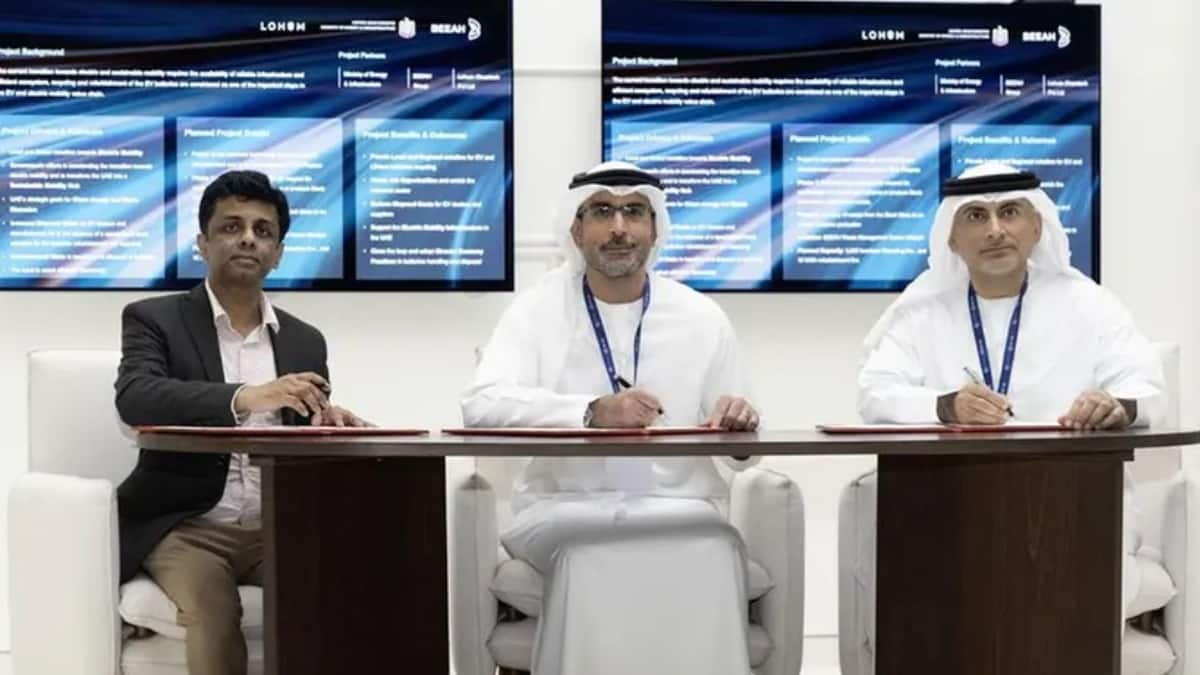Lohum partners Ministry of Energy & Infrastructure, UAE and BEEAH to setup UAE’s first EV battery recycling plan
Lohum Cleantech, a leading electric vehicle battery recycling company is expanding its presence globally and has announced its partnership with the Ministry of Energy & Infrastructure, UAE, and BEEAH to setup UAE’s first EV battery recycling.
The partnership comes in light of UAE’s COP28 agenda and aligning with the UAE’s net zero by 2050 strategic initiative, Circular Economy Policy and supporting emissions-free mobility with future-ready solutions.
This Joint Development Framework Agreement the company says is a milestone in sustainability, reflecting the UAE’s role as a responsible energy supplier and accelerating the nation’s transition to clean resources, materials, and technologies. The development aligns with the UAE Circular Economy Policy 2021-2031, the UAE Energy Strategy 2050, and the UAE’s COP28 commitments.
In line with the National Electric Vehicles Policy, the MoEI launched the ‘Global EV Market’ transformational project earlier this year, aiming to turn the UAE into a global market for electric vehicles and increasing the share of EVs to 50 percent of total vehicles on the roads by 2050. A 2023 study showed that 70% of UAE respondents were considering the switch to electric vehicles. Nationally, a fifth of government agency vehicles are already electric.
Rajat Verma, Founder & CEO, Lohum said: “This joint development framework agreement between government, public-private, and global enterprise is a turning point for sustainability in the UAE, as the development will lead to a circular domestic supply of clean energy transition materials. We are thrilled to partner with the MOEI, UAE and BEEAH to drive low-CO2e battery waste management in the UAE and create a parallel battery materials supply chain globally. Through Lohum’s high-yield NEETM recycling technology, we support the UAE in their commitment to environmental responsibility. This partnership aligns with our goal to help nations and companies reduce their carbon footprint not just in India, but globally, and across all segments of the clean energy transition ecosystem.”
Sharif Al Olama, Under-Secretary for Energy and Petroleum Affairs, MoEIsaid, “The Ministry will provide the support needed for the plant to succeed as part of our Global EV Market initiative that aims to increase the share of EVs to 50 percent of all vehicles on our roads by 2050. As we anticipate substantial growth in the number of EVs, the project will provide local car dealers and manufacturers with a sustainable, eco-friendly solution for EV batteries at the end of their life. It will help address the environmental and logistical challenges of expired or damaged EV batteries. The UAE aims to ensure a regulatory framework of flexible and conducive policies and put in place a suite of economic, environmental, and social incentives to encourage public and private entities to invest in this sector. This step contributes to the objectives of the UAE Net Zero by 2050 Strategic Initiative, integrates circular economy principles, and increases EV penetration. This will support our national economy and lower the carbon footprint of the transport sector – a target sector for our decarbonisation drive and of the National Energy and Water Demand Side Management Program.”
Khaled Al Huraimel, Group CEO, BEEAH said, “As EVs continue to play a role in the decarbonisation of the transport sector and contribute to net-zero emissions targets, it is important that we deploy circular solutions proactively. In partnership with the Ministry of Energy and Infrastructure, BEEAH is pursuing a partnership with Lohum to addresses this challenge. Our EV Battery Recycling plant will reintroduce valuable minerals and materials back into the circular economy, keep waste out of landfills and support the long-term sustainability of transitions to EVs.”



